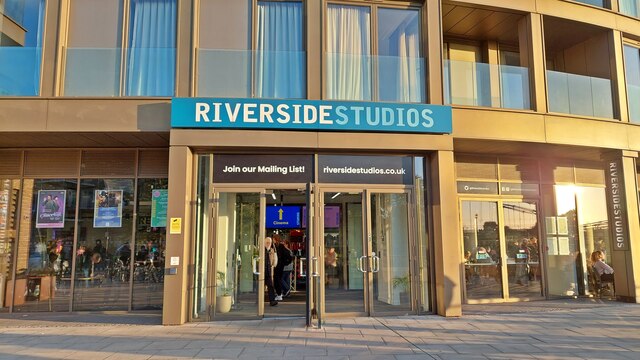Riverside Studios
Introduction
The photograph on this page of Riverside Studios by Mark Percy as part of the Geograph project.
The Geograph project started in 2005 with the aim of publishing, organising and preserving representative images for every square kilometre of Great Britain, Ireland and the Isle of Man.
There are currently over 7.5m images from over 14,400 individuals and you can help contribute to the project by visiting https://www.geograph.org.uk

Image: © Mark Percy Taken: 6 Oct 2022
The present building opened in 2019, five years after the closure and demolition of the original Riverside Studios. The site was occupied by a Victorian iron works, which was converted into a film studio in 1933. Many classic films were made here, such as The Seventh Veil (1945) with James Mason, The Happiest Days of Your Life with Margaret Rutherford (1950) and Father Brown (1954) with Alec Guinness. In 1954, the studios were taken over by BBC Television and became home to many of their most iconic programmes, including Hancock’s Half Hour (1957-60), Quatermass and the Pit (1958-59) and Doctor Who (1964-68). Following the BBC’s departure in 1974, the building became an arts centre in 1976.

